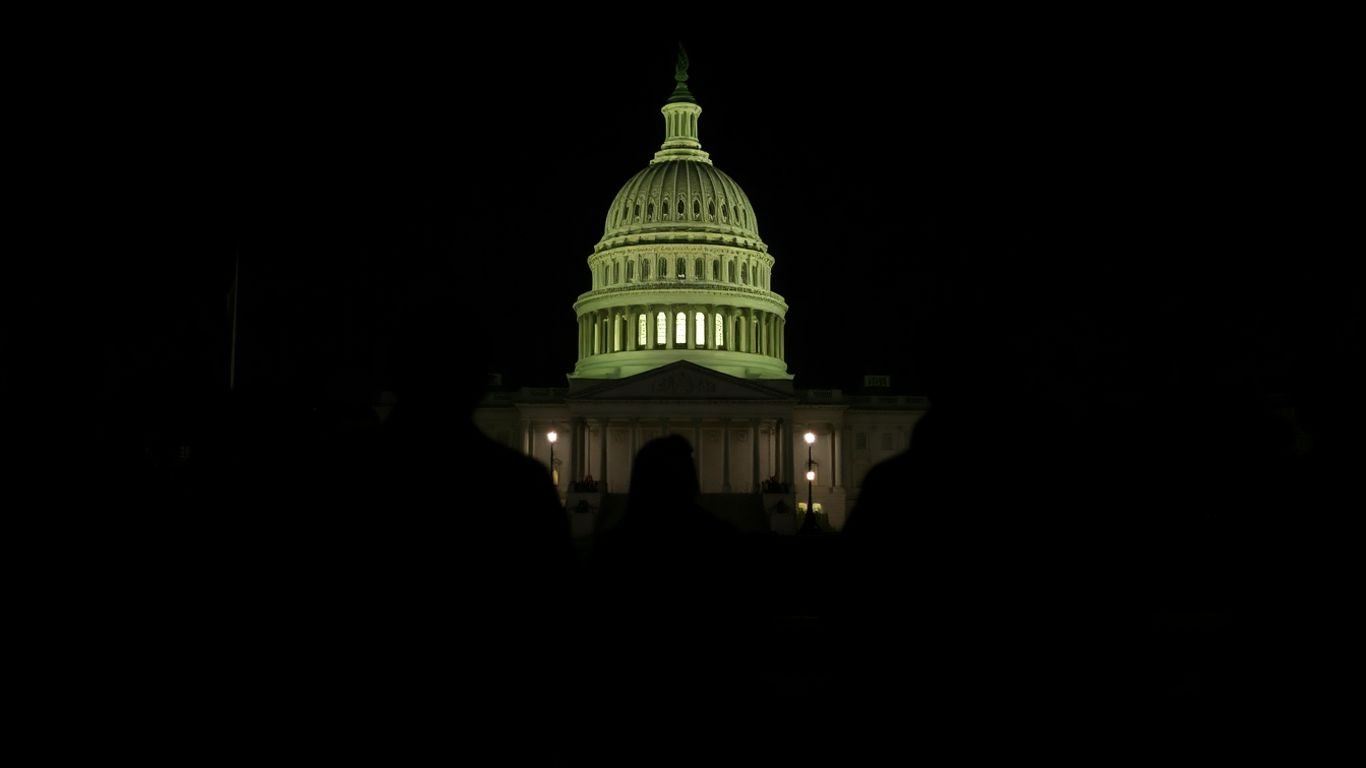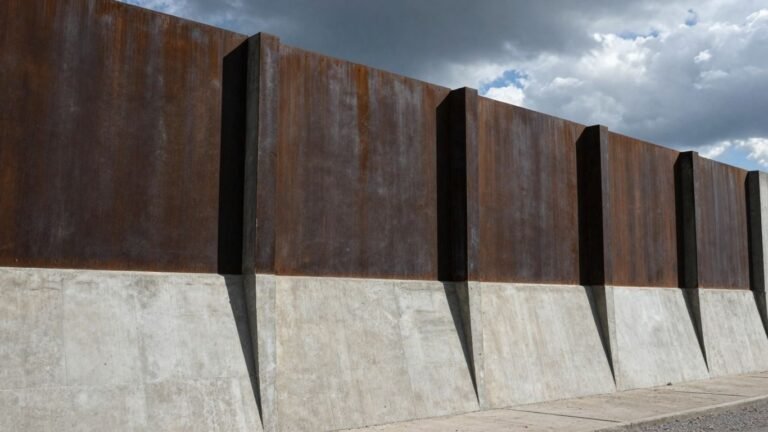The Insurrection Act of 1807 and Portland: How Trump Invoked a Centuries-Old Law

You might have heard talk about President Trump wanting to use a really old law, called The Insurrection Act of 1807, especially when it came to protests and the border. It’s a law that lets the president use the military inside the country, which is not something that happens often. Let’s break down what this law is all about, why Trump was interested in it, and what it could mean.
Key Takeaways
-
The Insurrection Act of 1807 is a law that allows the president to use federal troops or the National Guard within the United States to deal with major civil unrest or when laws can’t be enforced normally. It’s an exception to the Posse Comitatus Act, which usually stops the military from doing domestic law enforcement.
-
A president can invoke The Insurrection Act in a few ways: if a state’s governor or legislature asks for help, or even without a state’s consent if there’s an insurrection, domestic violence, or unlawful obstruction making it impossible to enforce federal laws or protect constitutional rights.
-
President Trump showed interest in The Insurrection Act of 1807 as a way to quickly enforce his policies, particularly concerning mass deportations and border security, and he threatened to use it during protests in his first term.
-
While The Insurrection Act has been used historically for situations like the Rodney King riots, its invocation is rare and usually considered a last resort. Legal experts have raised concerns about its broad interpretation and potential for abuse, especially regarding civil liberties.
-
Invoking The Insurrection Act could lead to the military being used for domestic policy, raising significant concerns about civil liberties, the potential for misuse against specific communities, and the long-term impact on the balance between military and civilian authority in the U.S.
Understanding The Insurrection Act of 1807
The Insurrection Act of 1807 is a law that lets the President use the U.S. military inside the country. It’s a pretty old piece of legislation, and it’s not used every day. Basically, it’s an exception to another rule called the Posse Comitatus Act. That act usually stops the military from acting as domestic police. But when the Insurrection Act is invoked, that restriction gets put on hold for a bit.
What Is The Insurrection Act of 1807?
At its core, the Insurrection Act of 1807 gives the President the power to deploy federal troops domestically. This can happen in a few specific situations. Think of it as a tool for extreme circumstances when civilian law enforcement just can’t handle things. The law allows the President to use the military to put down rebellions, quell widespread civil disorder, or enforce federal laws when it’s become too difficult for local authorities to do so. It’s a significant power, and it’s meant to be used only when absolutely necessary.
Historical Context of The Insurrection Act
This law didn’t just appear out of nowhere. It’s actually a collection of laws passed over time, starting way back in 1792 and continuing until 1871. The idea was to give the federal government options for dealing with serious internal unrest. It was a response to times when states might have been unable or unwilling to handle major disturbances on their own. It’s a reflection of how the country has grappled with maintaining order throughout its history.
Exceptions to Posse Comitatus Act
The Posse Comitatus Act, passed in 1878, is the general rule that says federal troops can’t be used for domestic law enforcement. It’s a big deal because it keeps the military separate from civilian policing. However, the Insurrection Act of 1807 is a major exception to this. It carves out specific circumstances where the President can bypass the Posse Comitatus Act and bring in the military to help restore order or enforce laws. This is usually reserved for situations that are beyond the capacity of state and local forces.
Presidential Authority Under The Insurrection Act
The Insurrection Act of 1807 gives the President some serious power when things get really out of hand domestically. It’s not something used lightly, but it’s there for extreme situations. Basically, it allows the President to use federal troops, including the National Guard, to step in and restore order when state and local authorities can’t handle it.
When A State Requests Federal Aid
This is the most straightforward scenario. If a state’s governor or legislature sees that they’re facing an insurrection or widespread civil disorder that they can’t control, they can officially ask the President for help. This request for federal assistance is the primary way the Insurrection Act is meant to be used. It respects the idea of state sovereignty while providing a safety net for truly dire circumstances.
Presidential Authority Without State Consent
Things get a bit more complicated here. The Act also allows the President to act even if a state doesn’t ask for help. This can happen in a couple of specific situations:
-
When state or local law enforcement has completely broken down, and they’re either involved in the problem or too overwhelmed to stop violence.
-
When unlawful obstructions, violence, or conspiracies are making it impossible to enforce federal laws or carry out justice.
-
If a state is unable or unwilling to protect people’s constitutional rights due to unrest.
This part of the law is where things can get controversial, as it allows federal intervention without a direct plea from the state. It raises questions about the balance of power and potential overreach.
Enforcing Constitutional Rights and Justice
One of the key justifications for invoking the Insurrection Act, especially when a state doesn’t consent, is to uphold the Constitution and ensure justice is served. If riots or insurrections are actively preventing the execution of federal laws or blocking the courts, the President can step in. This isn’t about imposing new policies, but about making sure existing laws are followed and that people’s basic rights aren’t trampled. It’s a safeguard against situations where chaos could lead to the “suspension of constitutional rights” or a de facto “constitutional rights suspended” for citizens.
The use of federal troops for domestic law enforcement is a really big deal. It’s a power that has historically been viewed with caution because of the potential for abuse and the impact on civil liberties. The idea is that this is an absolute last resort, not a first option.
It’s important to remember that before the President can even consider using the Insurrection Act, they are supposed to issue a proclamation. This is a public announcement ordering those causing trouble to disperse peacefully. It’s a final warning before federal military force might be considered.
Trump’s Interest in The Insurrection Act

President Trump showed a consistent interest in using the Insurrection Act of 1807, a law that allows the president to deploy federal troops domestically under specific circumstances. This wasn’t just a passing thought; it was a tool he seemed eager to wield, particularly when traditional policy steps felt too slow or insufficient for his agenda. His focus often seemed to be on asserting federal authority, sometimes in ways that bypassed state or local control.
Circumventing Traditional Policy Steps
One of the driving forces behind Trump’s consideration of the Insurrection Act was a desire to speed up his policy objectives. He often expressed frustration with what he perceived as bureaucratic delays or a lack of cooperation from state and local officials. The Insurrection Act offered a potential shortcut, allowing for direct federal intervention without waiting for requests from state governors or navigating lengthy legislative processes. This approach aimed to bypass what he saw as obstacles to enacting his vision, particularly concerning immigration and border security.
Desire to Control Mass Protests
During periods of significant civil unrest, such as the widespread protests in 2020, Trump frequently voiced his inclination to use the Insurrection Act. He made it clear that he felt governors were not acting decisively enough to restore order in cities like Portland. His rhetoric suggested a belief that federal military force was necessary to quell disturbances and enforce laws, even when local authorities might not have requested such intervention. This stance often put him at odds with local leaders, including figures like Senator Ron Wyden, who rejected the idea of federal troops being deployed to Portland, stating the city was peaceful Senator Ron Wyden has rejected President Donald Trump’s offer to deploy federal troops to Portland.
Campaign Promises and Border Security
The Insurrection Act also factored into Trump’s broader campaign promises, especially those related to immigration and border security. He often spoke about taking strong measures to control the border and carry out mass deportations. The possibility of invoking the Insurrection Act was explicitly mentioned in reports ordered by Trump concerning the southern border, indicating a serious consideration of using military force to support immigration enforcement. This potential application raised significant concerns about the use of the military for domestic law enforcement and its impact on civil liberties.
The Insurrection Act represents a significant, rarely used presidential power that Trump explored as a means to assert federal authority and achieve policy goals, particularly in response to protests and border security concerns.
Here’s a look at some key aspects of his interest:
-
Expedited Action: Trump sought ways to bypass slower, traditional policy implementation methods.
-
Asserting Federal Control: He showed a willingness to use federal power when he felt state or local responses were inadequate.
-
Border Security Focus: The act was considered as a tool to bolster immigration enforcement and border control efforts.
-
Response to Unrest: Trump frequently suggested invoking the act during periods of widespread protests.
The potential use of the Insurrection Act by any president raises questions about the balance between national security and civil liberties. It’s a powerful tool that, if misused, could have far-reaching consequences for domestic order and individual freedoms.
Historical Use of The Insurrection Act
Previous Invocations of The Act
The Insurrection Act isn’t exactly a new piece of legislation; it’s actually a collection of laws that have been around since the late 1700s and early 1800s. It’s been used a bunch of times, at least 30, to deal with serious unrest. Think of it as a last resort when things get really out of hand and regular law enforcement just can’t handle it. It’s a way for the President to bring in federal troops, but it’s supposed to be used carefully.
The Rodney King Riots and The Insurrection Act
One of the more recent times the Insurrection Act was brought up was in 1992. This was after the Rodney King verdict, and Los Angeles was in chaos. President George H.W. Bush had to step in and use the Act to help restore order. It shows how serious situations can get and why this law exists, even if it’s not used often. It’s a pretty stark reminder of what can happen when tensions boil over.
Notable Historical Applications
-
Civil War: Abraham Lincoln used the Insurrection Act right at the beginning of the Civil War when states started to secede. This was a massive, nationwide event that definitely required federal intervention.
-
Little Rock Nine: Back in 1957, President Dwight D. Eisenhower invoked the Act. The Arkansas National Guard was actually preventing Black students from entering a school. Eisenhower federalized the Guard, essentially telling them to stand down so the students could go to school. This was a big moment for civil rights.
-
1967 Detroit Riots: Federal troops were sent in to help quell the widespread rioting and restore order.
The Insurrection Act and constitutional rights are a tricky balance. While it gives the President power to act in emergencies, there are always concerns about civil liberties under the Insurrection Act. The idea is to enforce laws and protect rights, but the deployment of federal troops Portland or anywhere else always raises questions about overreach and individual freedoms. It’s a tool meant for extreme situations, not everyday policing.
It’s important to remember that using federal troops in domestic situations, like federal troops Portland saw, is a big deal. The Posse Comitatus Act generally says the military can’t act as domestic law enforcement, and the Insurrection Act is the exception to that rule. But even when invoked, there’s a lot of debate about how it’s used and whether it respects Insurrection Act history and the rights of citizens.
Legal Challenges and Interpretations
When presidents start talking about using the military for domestic stuff, it always gets complicated. The Insurrection Act and related laws aren’t exactly crystal clear, and people have been arguing about them for ages. It’s not like flipping a switch; there are rules and traditions, even if the laws themselves seem pretty broad on the surface.
The Insurrection Act and 10 U.S.C. § 12406
One of the big questions is how 10 U.S.C. § 12406 actually works. This law lets the president call up the National Guard if there’s a rebellion or if the regular army can’t get the job done. But here’s the kicker: it’s not always clear if this law is meant to stand on its own or if it’s just a sidekick to the Insurrection Act. Historically, it’s often been used together with the Insurrection Act, not really as a separate power. Some legal minds think that using § 12406 by itself to do things the Posse Comitatus Act usually forbids might be a stretch. It’s a bit of a legal gray area, and courts haven’t really settled it.
-
Section 12406’s dual nature: It seems to give the president power to call up the Guard, but then it also says orders should go through governors. This creates confusion when a governor might not agree.
-
Relationship with Insurrection Act: Is § 12406 just a procedural step, or is it a substantive grant of power for domestic law enforcement?
-
Posse Comitatus Act implications: If § 12406 allows for law enforcement actions, does it create an exception to the Posse Comitatus Act?
Legal Scrutiny of Presidential Actions
Presidents have tried to use different angles to get troops involved domestically. Sometimes, they lean on what they see as inherent constitutional powers to protect federal property or functions. The Office of Legal Counsel has put out memos saying the president can do this without running afoul of the Posse Comitatus Act. The Department of Defense has similar policies. But this is mostly an executive branch idea, and using it for core law enforcement tasks would likely face serious legal challenges. It’s not the same as having the clear authority the Insurrection Act provides.
The idea of using the military for domestic law enforcement is a really sensitive topic. It goes back centuries, to ideas about keeping the military separate from civilian policing to protect people’s freedoms. When that line gets blurry, it raises big concerns about where power lies and how it’s used.
The ‘Last Resort’ Doctrine
Even when the laws seem to give presidents a lot of leeway, the Department of Justice has historically said the Insurrection Act should only be used as a “last resort.” This means it’s not the first thing you do when things get tough. The idea is that you only bring in the military when:
-
A state specifically asks for help to put down an uprising.
-
A state is refusing to follow a federal court order.
-
State and local law enforcement have totally failed, either by being involved themselves or by being too weak to stop serious violence, making it look like the state itself is behind the problem.
This high bar exists because mixing the military with civilian law enforcement is a big deal. It’s meant to prevent the government from turning its own army against its people, which is a path that can lead to serious problems for individual liberties.
Potential Implications of Invoking The Act

Invoking the Insurrection Act, or similar authorities that allow for the deployment of federal troops domestically, carries some pretty significant consequences. It’s not something presidents are supposed to do lightly, you know? It really steps into territory that makes people nervous about civil liberties and the role of the military in our society.
Deployment of Military for Domestic Policy
When the Insurrection Act is invoked, it means the president can use federal troops or the National Guard (under federal control) to enforce laws or suppress unrest. This is a big deal because, for a long time, there’s been a strong tradition, reinforced by laws like the Posse Comitatus Act, against using the military for domestic law enforcement. The idea is to keep a clear separation between the military and civilian policing. Using troops for things like crowd control or enforcing laws blurs that line considerably. It’s a move that’s generally seen as a last resort, when state and local authorities are completely unable to handle a situation. The Stafford Act also provides further emergency-related authorities, which can sometimes be invoked alongside or instead of the Insurrection Act.
Concerns Over Civil Liberties
This is where things get really concerning for a lot of people. When you have soldiers on the streets, tasked with law enforcement duties, there’s a heightened risk to individual freedoms. Think about it: soldiers are trained for combat, not for de-escalating protests or interacting with civilians in a law enforcement capacity. Their presence alone can be intimidating, and the potential for excessive force or the infringement of rights like freedom of assembly and speech is a serious worry. It’s a slippery slope, and many worry that using the military this way could set a precedent for future administrations to bypass normal legal processes.
Impact on Immigrant Communities
Invoking the Insurrection Act can have a particularly chilling effect on immigrant communities, especially if the context involves immigration enforcement or protests related to it. If federal troops are deployed, and their mission is perceived as being in support of immigration crackdowns, it can create an atmosphere of fear and distrust. Immigrants, including those who are in the country legally or are citizens, might be hesitant to engage with authorities, report crimes, or even go about their daily lives. This can disrupt communities and make it harder for law enforcement to gain cooperation on other matters.
The historical context and legal interpretations surrounding the Insurrection Act suggest it’s meant for extreme circumstances, not as a routine tool for managing protests or enforcing policy. The potential for overreach and the impact on fundamental rights are significant considerations that weigh heavily against its casual invocation.
So, What’s the Takeaway?
Looking back at the whole situation with the Insurrection Act and how it was discussed around the time of the protests and border policies, it’s clear things got pretty intense. The idea of using such an old law, one that lets the president bring in the military for domestic stuff, really got people talking – and worrying. It felt like a big deal, a real throwback to different times, and whether it was actually the right move or just a show of power was the big question. It definitely made folks think about the lines between different branches of government and how much power one person can really wield, especially when things get heated. It’s a reminder that these laws, even if they’re ancient, can still pop up and cause a stir in modern times.
Frequently Asked Questions
What exactly is the Insurrection Act of 1807?
Think of the Insurrection Act of 1807 as a special law that lets the President use the U.S. military, including the National Guard, inside the country. This is usually only done in very serious situations, like when there’s a big protest that’s out of control, a rebellion, or when it’s just too hard for regular police to enforce the laws. It’s a way for the President to step in when things get really chaotic.
Can the President use this law anytime he wants?
Not exactly. The President usually needs a good reason. For instance, a state’s governor or legislature might ask for federal help. Or, if the President believes that laws aren’t being followed and it’s impossible to fix with local forces, he can act. But even then, he typically has to first tell people causing trouble to stop and go home peacefully.
Has this law been used a lot in the past?
The Insurrection Act isn’t used very often. It’s been brought out a few dozen times throughout history. One of the more recent times was in 1992, after the Rodney King events in Los Angeles, when the military was used to help calm things down.
Why was President Trump interested in using the Insurrection Act?
President Trump showed interest in using this law because he wanted to take strong action, especially concerning protests and border security. He felt that sometimes the usual steps to deal with these issues were too slow, and he wanted the power to use the military to enforce his policies or restore order quickly.
What’s the difference between the Insurrection Act and the Posse Comitatus Act?
The Posse Comitatus Act is a rule that generally stops the military from acting like police officers inside the U.S. The Insurrection Act is like an exception to that rule. When the Insurrection Act is used, it temporarily allows the military to step in for law enforcement duties, but only under specific, serious circumstances.
What could happen if the military is used for domestic issues?
Using the military for things that usually involve civilian police can raise concerns. People worry about the government having too much power and whether people’s basic rights, like freedom of speech or protection from unfair searches, might be put at risk. It’s a big deal because it blurs the lines between the military and everyday law enforcement.







One Comment